Folks,
You would all agree that was not that much to analyse in Episodes 115 and 116, given the abundance of padding about Adham and Sharifuddin and Mahaam and Javeda, as distinct from the pleasure of simply looking at the amusing segments, like Jalal's treasure hunt that goes delightfully awry at the final Rahim stage, with imli ka ped becoming tulsi ka ped !
NB: Waise to, Jodha Begum ka tulsi ka paudha to kafi mariyal lagta hai, shayad bahut zyada paani milne ki wajah se!😉 Use tulsi ka ped kaise kaha jai, meri to samajh mein nahin aata.
So, this post will be limited to the highlights. In any case, I am sure 95% of the forum is still in a daze about "the first touch"!😉
Episode 115: Ah, Rajat! The boy is a marvel, an absolute natural, to the camera born. Watch him in the scene with Jodha (and the kite and the pigeons). His depression lifts for a brief while as he watches her with the kite, and he comments Aap hawa ka mizaz achchi tarah samajhti hain, which is double meaning, and she looks doubtfully at him. She is not sure if it is a jibe, but still, there is none of the usual acidulated expression on her face, nor are her eyes narrowed in instinctive hostility.
When Jalal next asks her why she has left the pigeons and come to him, and mentions 2 possible reasons, the first is a leg pull, and the second shows how easily he can read her now. But in neither sally is there any of the old flirtatious teasing of similar instances in the past; he is as if extinguished from within. This is not the old Jalal. Bakshi Banu's treachery has hollowed him out, and it shows.
When Jodha retorts that neither reason is correct - which is a bluff, for the second in the real reason - Jalal nods his head in tired, dismissive acknowledgement, as if to say So what else is new? When she then asserts, with unexpected familiarity, ham aapki begum hain, the old Jalal would have smiled wickedly in ill-suppressed glee at this unprecedented progress. Not now. He merely lowers his head in a half nod, and then asks her to continue.
Again, when, while appearing to be solely focussed on reviving the udaan of Rahim's kite, Jodha steals a backwards glance at Jalal, he too is looking at her, but openly, without dissembling. However, there is no smile of pleased satisfaction on his face, it is sombre and closed as he regards her for a long moment before turning away. He is taking her in only peripherally, it is the hurt of betrayal that still clouds his spirit.
It is the nuances Rajat brings to this little scene that lift it well above the ordinary.
Jodha and Ruqaiya: The latter indulged in a display of concentrated folly that was remarkable even for the post-Smiley avatar of the Malika-e-Hind. One of these days, Ruqaiya Sultan Begum's shade is going to rise from its maqbara and smite the CVs very hard. Don't be surprised if at least a few of them are found cold and stiff in their beds some time soon!😉
Ruqaiya scores so many self goals that Jodha hardly needed to exert herself to roll her up lock, stock and barrel. It is beyond comprehension why, when Jodha is putting on the Prem Guru cap and quizzing her about her love for the man Jalal, as distinct from the Shahenshah, Ruqaiya does not tell her, simply and bluntly,
1)That she had married Jalal when he was a hunted prince on the run, more likely to end up dead than on a throne.
2)That but for the sacrifice of her father, Hindal Mirza, who not only gave up his life to save those of his stepbrother Humayan and Jalal, but left the whole of his holdings in Afghanistan to Jalal, and not to his own daughter Ruqaiya, there would have been no Shahenshah Jalaluddin today.
3)That she loves her Jalal so much that she will not share his love with anyone else.
Instead, she makes a complete ass of herself, undoubtedly so the CVs can make Jodha look cleverer.
Episode 116: The Shahenshah's address to his troops, the sort of pep talk a general usually gives them before a campaign, is far removed from the usual battle cry. It is lucid and compelling in its calm setting out of does and don'ts, the latter an extension of what he had roared at Adham Khan for his atrocities in Malwa, when he was on the point of executing him.
But the significant difference here is that Jalal explains, even to his ordinary soldiers, the compelling siyasati rationale for the kind of hearts and minds campaign aimed the non-combatants. The reason why treating them with justice and compassion would be good politics as well being morally sound, and would benefit the Mughal sultanate as well. It is a remarkable speech, for it is simple enough for even the most unsophisticated foot soldier to grasp, and yet it has far reaching significance for the future image of Akbar's rule. Jalal is here putting into practice the code of behaviour for the Mughal soldiery that he had discussed with Atgah Khan after he learnt from Jodha, with his great dismay, of the loot of temples in Amer.
Later, when discussing his approach to governance with Mahaam Anga, the only one with whom he can communicate on such issues, Jalal, for the first time, draws a specific lesson from what Jodha was telling Rahim about how to fly a kite. That one's eye should always be on the kite, even when it is flying well and the dor is in your hands, for even a moment's inattention can lead to the kite being brought down, to contemptuous comments by the onlookers.
But he extends and amplifies its import and its vital importance for the art of imperial governance, comparing the Mughal army to the dor of the kite and himself to the kite flyer. This passage illustrates Jalal's remarkable ability to gleam , from among the comments of others, that which is of use to him, and then polish it and add depth to it before fitting it into his framework of the ruler's craft. In this, he is like the legendary swan, which is said to be able to separate milk from water and drink only the former.
Jalal-Jodha:The only other scene of note is the one of Jalal with Jodha, just after he has dismissed Bakshi Banu. It was not as striking as I had expected, for Jodha had no more to say than what she had said already the last time she spoke to him about this, when he comes to question her about her pardoning Bakshi Banu.
The only improvement - and it is a significant one - is that she now relates her request for him to forgive his sister with his own suffering and his helpless rage against all and sundry because of the betrayal.
Paridhi does very well in her tearful appeal to Jalal , one hand holding on to his shoulder in an unprecedented display of emotional solidarity and even empathy. I loved it that for the first time in their relationship, she is able to feel at least part of his pain, and that both in her earlier scene with Hamida Banu and now with Jalal, she tries to imagine, even if she cannot as yet feel it fully under her own skin, what he must be going thru, and to articulate it to the best of her ability. It was precisely this that I had missed in all her earlier scenes with him about l'affaire Bakshi Banu, and I applauded her.
But it does not work, and Jodha has to retreat, her mission unaccomplished. I was satisfied, for it is high time she had to do the running after a withdrawn and non-responsive Jalal. It will do both of them good.
What was remarkable in this scene was how Rajat as Jalal went way beyond the script when he brushes off Jodha's appeal. His voice thickens and becomes almost suspended with suppressed grief as he warns her to stay out of his personal affairs. He never looks at her, but the tears are there, just below the surface, and they are reflected in his voice, that almost trembles as he speaks.
Rajat's voice control is extraordinary. I always say that he can make his eyes do whatever he wants them to do. Now I see that he can do the same with his voice.
Shyamala B.Cowsik



























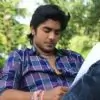


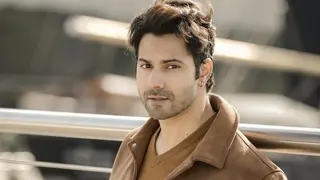

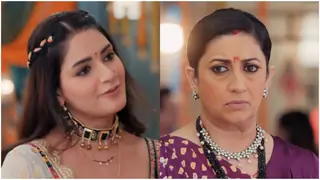

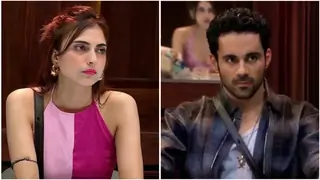
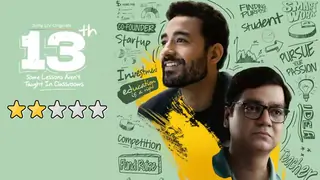

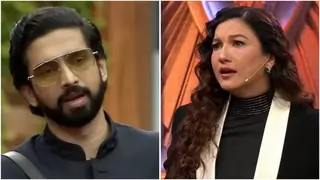





30